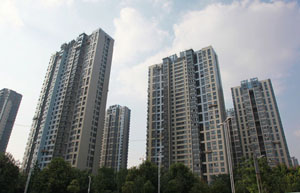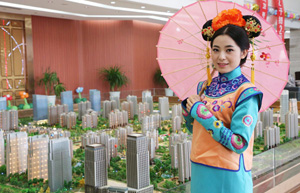Chinese developers, who had once enjoyed profit margins of over 40 percent in the boom days, are now facing a reality check, which, according to Lin Bo, the deputy general manger of China Real Estate Information Corporation, means that even a 10 percent net profit margin is "decent".
Andy Chang, a Hong Kong-based realty analyst with global credit ratings agency Fitch Ratings, said the average gross margin from residential projects for major Chinese developers, better positioned than most smaller ones, is just between 20 to 25 percent, if the land has not been reserved for many years.
Looking at it purely from a capital market perspective also, the listed developers had to offer new reasons to lift investor sentiment. So it really makes sense for them to diversify operations, rather than bank on home sales, analysts said.
Despite the wide range, most of the diversification falls into two categories. The first is "specialization", which means expanding further into property-related services and management sector, or find alternative niche markets such as tourism property, property for elders. The second option involves developing businesses that are not directly related to property such as finance, agriculture and consumer products.
Companies like Vanke, Country Garden Holdings, Longfor Group and Fantasia Holdings Group Co Ltd represent the first mode of development. For example, Fantasia in early July listed its "community service" branch in the Hong Kong stock market. Within three days, the market capitalization of the branch exceeded that of its parent company, underscoring the popularity of the concept. Vanke has also been expanding its various service businesses for several years now.
But beyond the buzz, the value generated from the service business has remained trivial compared with the earnings from home sales. Country Garden, a developer known for its exceptional service, reaped 777 million yuan from its property management business in 2013, a 31 percent growth from 2012. But it sold just 58.4 billion yuan worth of homes in the first half of this year.
"The problem with holding and managing property is you have to endure a tough time, probably five to six years, during which period you can't cash out, before the cash inflow from rents becomes meaningful," said Chang from Fitch Ratings, adding that "properties that are worth holding on to are also becoming rare."
Given the less mature phase in the mainland market, there is still a long road ahead before the mainland can produce developers holding assets as strong as the assets of HK investment property giants, like Sun Hung Kai Property, which mainly relies on proprietary properties as recurring revenue, he said.
|
 |
 |
| Realty market needsto regain its lost luster | Chinese home prices remain under pressure |
